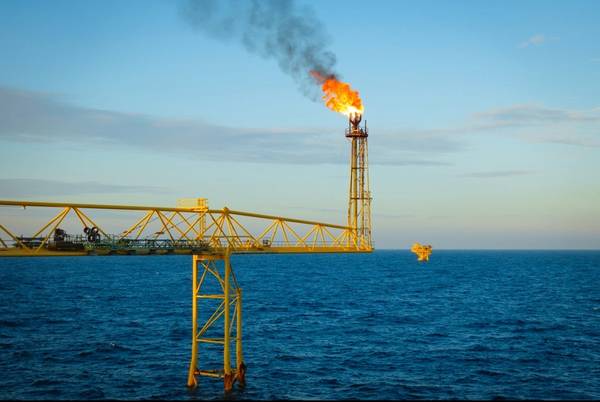
Oil and gas company Neptune Energy on Thursday endorsed the World Bank’s Zero Routine Flaring by 2030 initiative.
The initiative brings together governments, companies, and development institutions to eliminate routine gas flaring in oil production no later than 2030.
Eliminating the routine flaring of gas is a significant and necessary step towards reducing emissions and ensuring valuable energy resources are not wasted, Neptune said.
Neptune Energy’s VP Operations Europe, Pete Jones, said: “Neptune has set ambitious emissions reduction targets across our operations, with our endorsement of World Bank’s Zero Routine Flaring by 2030 initiative further demonstrating our commitment."
"We already have one of the lowest methane intensities in the industry at 0.02%. But we want to go further, which is why we are supporting this initiative.
"This commitment is in line with our broader decarbonization initiatives, which include ambitious targets to achieve a carbon intensity of 6 kg CO2/boe and net-zero methane emissions by 2030. To achieve these targets, Neptune is deploying a full range of initiatives which include using best available technologies to eliminate routine flaring, upgrading equipment, and improving energy efficiency.”
Neptune said it would report annually on its flaring and progress towards meeting the initiative’s objective.
Based on the text of the World Bank Initiative on reporting, the World Bank will request and then publish as received overall annual gas flaring from oil production in oil fields an oil company operates; and the share of flaring that is routine flaring.
The World Bank will not request data for individual flares and only has a reporting role, not an auditing role. The numbers are for “operated flaring” (all flaring in fields the company operates, irrespective of owner structure), and not for “equity flaring” (the company’s share of flaring based on its equity share). The initiative is not a legally binding document, but, as the World Bank puts it, "an endorsement does, however, establish a public commitment."
Worth noting, earlier this year, the UK oil and gas regulator OGA, issued guidance which it said set out a tougher approach to driving flaring and venting reductions, including the OGA's ability to stop production if flaring and venting is excessive.
"Forecasts suggest oil and gas will continue to play a role in the UK energy mix for the foreseeable future. Some flaring and venting is necessary for safe and efficient production, but the volume can be reduced," the OGA said at the time.
According to the OGA, flaring is responsible for a fifth of UK offshore oil and gas production-related carbon dioxide emissions and 1% of total UK annual CO2 emissions. Vented gas offshore represents about 0.15% of total UK greenhouse gas emissions, including around 1% of total UK annual methane emissions.
Under the OGA guidance, flaring and venting and associated emissions should be at the lowest possible levels in the circumstances.
The OGA said that all new developments pre-Concept Select should be planned and developed on the basis of zero routine flaring and venting.
OGA has also called for zero routine flaring and venting for all by 2030 at the latest. The OGA said it could order production to stop in the case of excessive flaring and venting.
In the UK, Neptune operates the Cygnus Alpha and Cygnus Bravo facilities in the Southern North Sea, producing gas from the Cygnus field – dubbed the UK’s largest single producing gas field, with the capability to supply energy to the equivalent of 1.5 million homes.
According to info on Neptune's website, operational carbon intensity from Cygnus is among the lowest in the industry, at less than 2kg per boe.